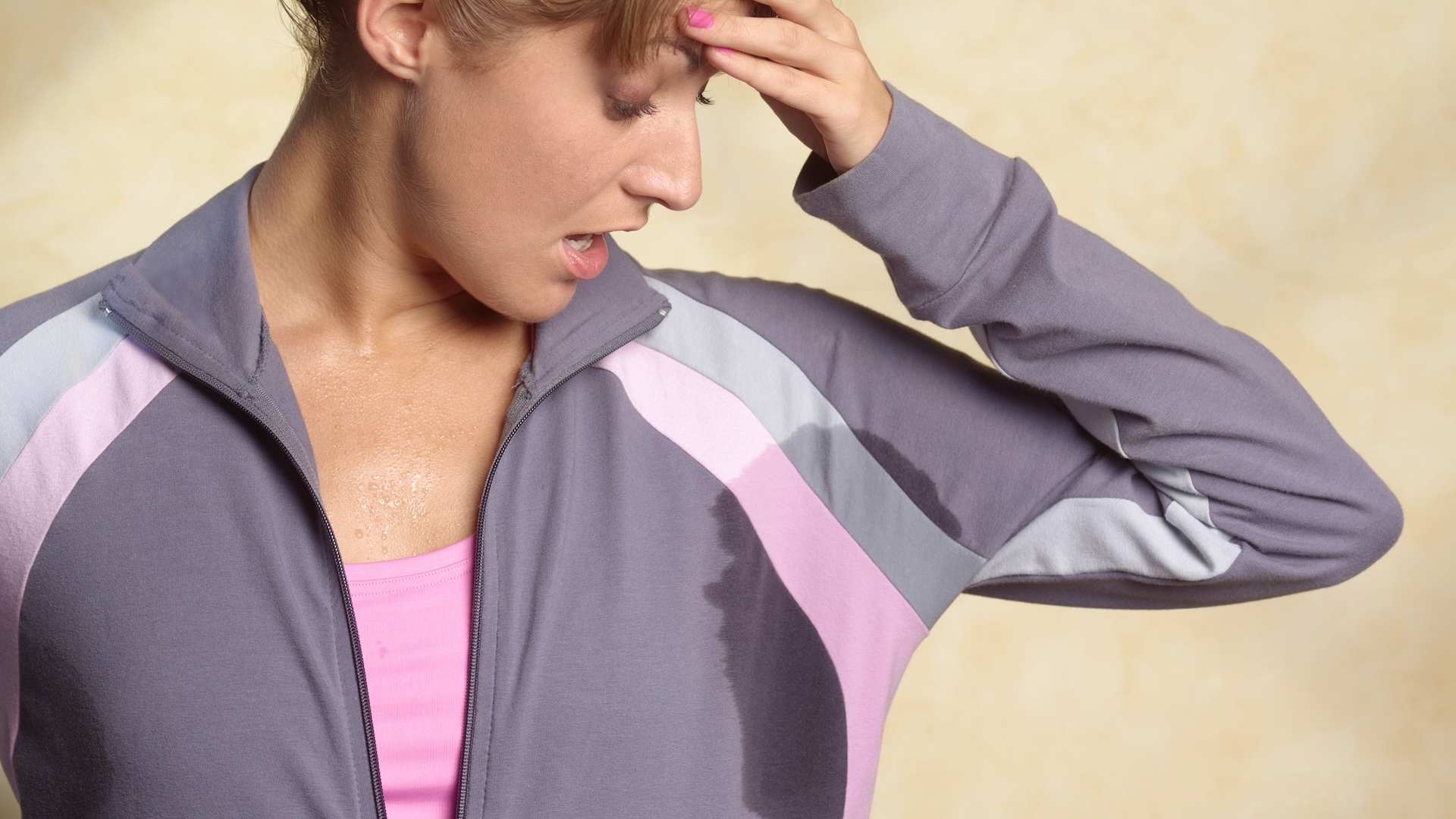What is Polygiene? And does it really stop your outdoor kit from smelling?
A closer look at the technology that claims to reduce odour in sports clothing and products

In a nutshell, Polygiene is a treatment for clothing and other products that claims to reduce the odour and whiff caused by the body sweating. But why do we need this – and does it really work anyway?
What is Polygiene and how does it work?
Polygiene is the creation of a Swedish company of the same name. The technology is based on silver salt, or silver chloride (Its chemical symbol is AgCl). Silver chloride is produced from recycled silver and is naturally present in water and soil.
Polygiene particles have a large amount of silver ions per surface area and due to the structure of the particles, very small amounts of silver are required for effective treatment.
Polygiene is applied to the fabric’s surface at the finishing stages of manufacture of a garment, such as a synthetic baselayer.
Testing has found that polygiene does not irritate the skin and also it does not interfere with bacteria naturally occurring on the skin.

The uses of silver chloride
As well as Polygiene, silver chloride has a wide range of uses, including electroplating and polishing mirrors, making alloys, making some medicines and in photographic films.
It also has several disinfectant and antiseptic properties and is used in the treatment of mercury poisoning, as well as in wound healing materials, deodorants and water treatment.
All the latest inspiration, tips and guides to help you plan your next Advnture!
When added to clothing or sports kit, such as the Alpkit Woodsmoke Hiking Shirt and Montane Men's Dart Lite T-Shirt, Polygiene is said to “inhibit and guard against the growth of odours from microbes such as bacteria, fungus and mildew”.
Why do you need Polygiene clothing?
We have all smelled the whiff of dried sweat on our clothes haven’t we? In particular, synthetic t-shirts and baselayers can quickly become smelly with sweat.
This smell is caused when odour-causing bacteria settles into a fabric, mixes with sweat and then multiplies.
When Polygiene is added to garments, such as baselayers, sports bras, footwear and even gear such as backpacks and wetsuits, the products are said to then “resist deterioration by mould fungus and odour-causing bacteria”.
There are a number of reasons for embracing Polygiene and this includes reduced odour in clothes, which means you can wear items for longer. If you are away on a long trip, you can take fewer items with you.
In addition, Polygiene allows consumers to be more "climate smart". The longer you wear a garment, the less washing it requires so you will be reducing your energy and water consumption, plus using less detergent. Fewer washes also means reduced levels of plastic microfibres are released into the environment.
Cleaning and washing products less often means they do not deteriorate as quickly due to a lose of fibres, which again leads to longevity and less need to replace the items. Buying fewer items is seen as a climate-friendly action.
If we also buy fewer items then we are limiting the negative impact on the planet of the processes of manufacture.
The Polygiene company also urges consumers to wash garments at lower temperatures, hang clothes to dry them and reduce the use of tumble driers.
What's more, Polygiene believes we should use textiles in a sustainable way. The brand's website states: “Man-made fibres like polyester will play an important role in meeting the world’s growing demand.
“We need to use textiles more efficiently, that is, clothing and gear must be made of the more sustainable synthetic fibres that stay fresh, can be washed less, last longer and can be reused and recycled.”
Polygiene-treated garments can be recycled when worn-out. The treatment is bluesign approved, which means it meets the requirements of the textile industry’s demanding environmental certification that takes the entire product life-cycle into account.

Does Polygiene work?
By all accounts – and this is both my experience and that of other outdoors enthusiasts – Polygiene does reduce the smell of body odour on clothes. Most people reckon they can wear an item for many days in a row and even when they have been working out hard and sweating a lot.
The debate is how long this treatment remains effective. Polygiene is claimed to be a treatment that is permanent and effective for the lifetime of the product.
However, when reading about the care of products treated with Polygiene, the website states: "Only wash it when absolutely necessary. The fewer times a product is washed, the longer it will last, and the lower its environmental impact will be.”
In my experience – and having spoken to other sporty people – the Polygiene effectiveness is good when the product is new. However, the effectiveness of the treatment does appear to wear off over months and years of use and washing.
It's also worth pointing out that while Polygiene can reduce the smell of sweat in clothing, that odour still clings to the body so there will be times when you catch a whiff of body odour, such as under the arms, while your clothing is still relatively odour free.
We'll be putting Polygiene to the test as scientifically as possible soon, by seeing how long we can wear a treated garment before it starts to smell. Look out for that update soon...

Let's not forget the odour-busting qualities of merino
Clothing made of Merino wool is considered to have similar benefits to clothes treated with polygiene. Merino has natural anti-bacterial properties so it tends to resist the usual odour whiff of sweating and because the fabric smells less, wearers do not wash it as frequently as synthetic products.
As far as I am aware, the anti odour benefits of merino last the lifetime of the product simply because the natural fabric is what gives it the odour rebuffing properties.
There's also a new Polygiene product – OdorCrunch
Polygiene OdorCrunch uses natural silica particles to capture the odours that cling to fabric fibres. Silica is an oxide of silicon, or silicon dioxide.
Polygiene states the new treatment is "95% filtered river water and 5% modified silica sand particles combined using a patented formula".
In addition, the company says: "The silica attracts molecules of oxygen, nitrogen and sulfur, the elements that create bad odors. Once absorbed, the silica ‘crunches’ them by cracking and breaking down each molecule, so it loses its potency. That way, the smell is permanently eliminated."
Polygiene – the pros
Here's a list of the advantages of Polygiene when used in synthetic clothing.
Pack lighter: You can pack fewer items of clothes when backpacking, bikepacking or travelling because your synthetic gear doesn’t start to smell after just one wear.
Reduced washing: There is less need to wash clothes at home and while away on a trip.
Spend less: You'll need fewer items of clothing.
Longer-lasting clothes: Less washing and reduced bacteria means the fibres in your clothes will not break down as quickly, which means they can be worn for more months and years.
Eco-friendly: Polygiene treated clothes are washed fewer times, which is beter for the planet.

Fiona Russell is a widely published adventure journalist and blogger, better known as Fiona Outdoors. She is based in Scotland and is an all-round outdoors enthusiast with favorite activities including trail running, mountain walking, mountain biking, road cycling, triathlon and skiing (both downhill and backcountry). Aside from her own adventures, Fiona's biggest aim is to inspire others to enjoy getting outside and exploring, especially through her writing. She is also rarely seen without a running skort! Find out more at Fiona Outdoors.
